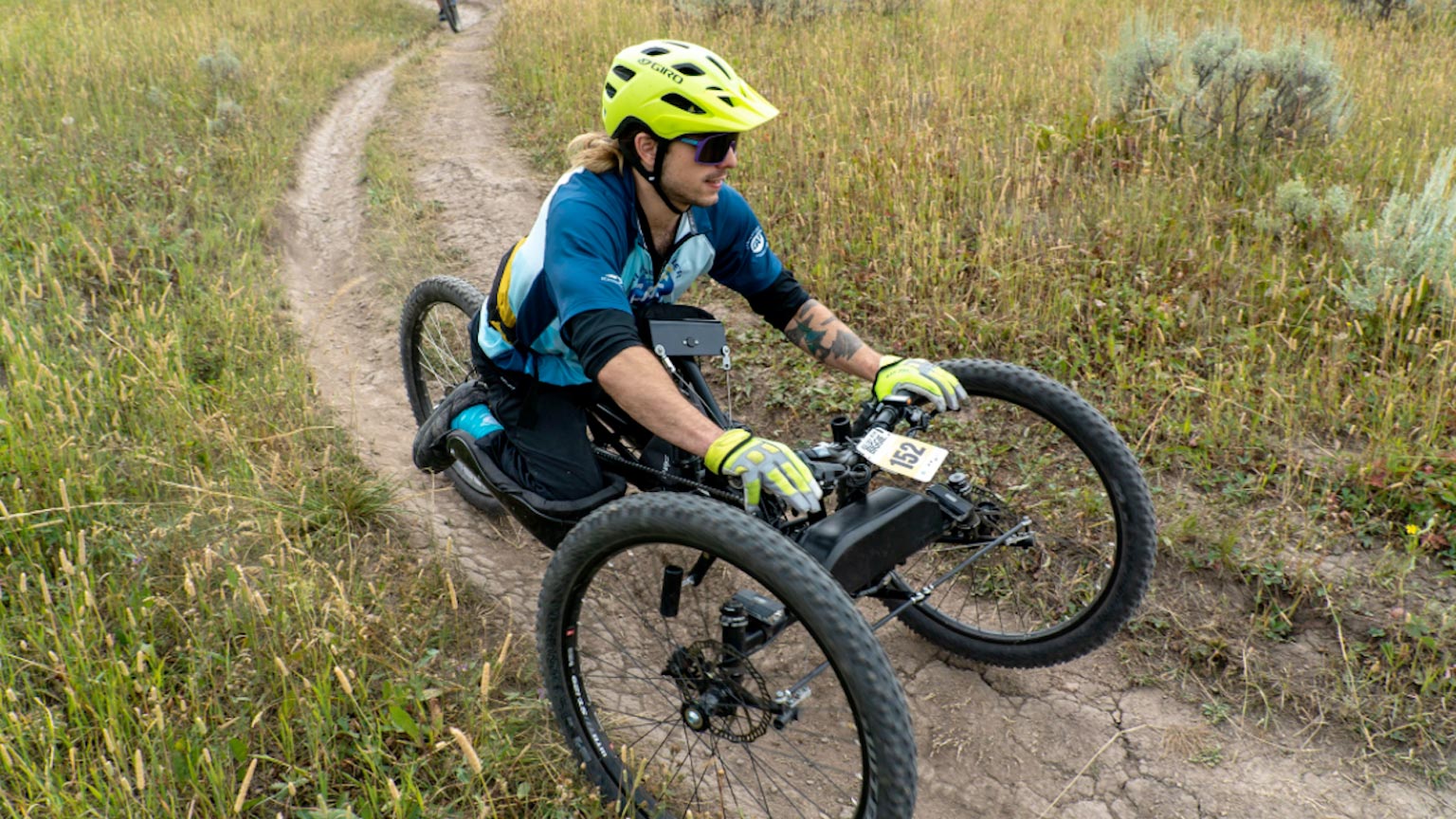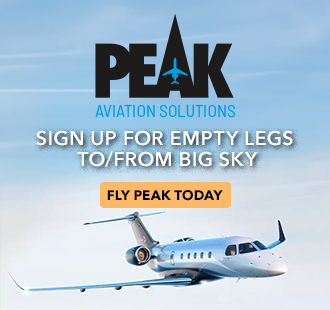By Bella Butler
The sun was high in the sky on Aug. 27, 2022, when Drew Asaro pedaled toward the finish line of the Big Sky Biggie mountain bike race. Spectators lined the streets and cheered the paraplegic athlete through the inflatable arch with Lone Mountain backdropping the triumphant finish. Among Asaro’s biggest fans in that moment were three volunteers that had supported Asaro along the 15-mile stretch of mostly single-track trails that climbed and descended steep hills, crossed rivers and traversed rough terrain on an adaptive cycle.
In 2018, a ski accident at Big Sky Resort paralyzed Asaro from the waist down. Still, Asaro is a stand-out athlete by any regard, as displayed by his powerful Biggie ride, but outdoor recreation comes with limitations for people with physical disabilities. In many cases, adaptive equipment is needed to compensate for these challenges, as is specific instruction or additional support. Enter the Challenged Athletes Foundation, a national organization that’s been creating accessible opportunities in sports for people with physical disabilities since its inception in 1994.
Asaro’s Biggie ride was made possible by the use of an adaptive cycle, which he was able to purchase through a CAF grant, one of the more than 44,000 the organization has funded for people with disabilities. It’s through these grants, as well as programming, that CAF works to achieve its mission: to provide opportunities and support people with physical disabilities in pursuing an active and empowering life.
Although founded in San Diego, CAF now serves all 50 states through its NorCal, Northeast and Idaho regions. The Idaho region is relatively new, established about five years ago, and has helped CAF expand its reach and offerings in the mountains.
“The Idaho team really creates a lot of camps and clinics for a lot of outdoor experiences just because of the topography,” said Patrick Lawrence, chief of programs for CAF. “It’s really opened up what CAF has been able to provide for outdoor recreation for people with physical disabilities.”
Just a few hours northeast of the Idaho region’s base in Boise, CAF is beginning to explore ventures in the Big Sky area. In 2022, CAF partnered with BASE, the community center in Big Sky, and hosted an adaptive fly-fishing and rock-climbing camp. Participants floated and fished the Madison River and scaled the walls of the community center with the help of trained guides and adaptive equipment.
One participant, Mike Manhardt from Missoula, who suffered a spinal cord injury while working on a forestry project in Montana in 2018 that left him quadriplegic, wrote a blog post about his experience with the camp.
“No matter what a person’s ability is, the boat levels the playing field for all,” Manhardt wrote. “While casting a rod, everybody looks the same and has the same disadvantage of trying to convince a tiny little fish to eat something that looks like a bug.”
Also among the fly-fishing cohort was Dani Aravich. Aravich, who was born without her left hand and forearm, now lives in Bozeman and is a cross-country ski and biathalon athlete on the U.S. paralympic team. She’s been involved with CAF in various capacities since 2019, when she was recruited to a cross-country training camp with CAF that drew her to the sport after competing as a track and field athlete prior. Since, Aravich has served as a participant, coach and ambassador with CAF.
“I would say [CAF] is definitely the most well-known, largest and most impactful organization within adaptive sports,” she said. “… It’s really cool to see anything from a Paralympic-level athlete to someone who was recently injured and is just interested in trying a new sport.”
While its work in southwest Montana is just beginning, Aravich said she sees exciting opportunities for CAF in the area—especially with the nation’s Paralympic nordic and biathlon teams being based in Bozeman, she added.
“Anywhere you go, it might not be obvious, but there’s gonna be people with disabilities,” she said. “So [we’re] making sure we can find those people and let them know there’s opportunities and options for them to participate in sports.”
Lawrence echoed this, adding that while much of CAF’s work includes providing adaptive equipment grants, it’s the community the organization fosters that’s the “secret sauce” to its work.
“It’s very palpable,” he said. “When you show up to a CAF camp or clinic or an event, there’s a real sense of community that’s had there that a lot of folks who have permanent disabilities don’t experience in other parts of society. It’s when they can really come together and not have to be looked at and judged and thought to be different that there’s a real different feel about it, which is something that’s very organic and we help to facilitate through providing these opportunities.”
To get involved with the Challenged Athletes Foundation, visit challengedathletes.org.
Bella Butler is a writer and editor based in Bozeman. She most recently served as the managing editor for Mountain Outlaw, another Outlaw Partners publication.








